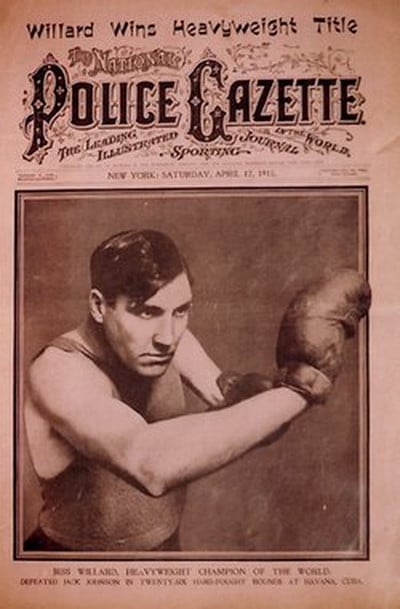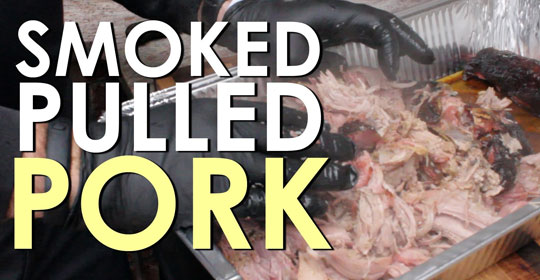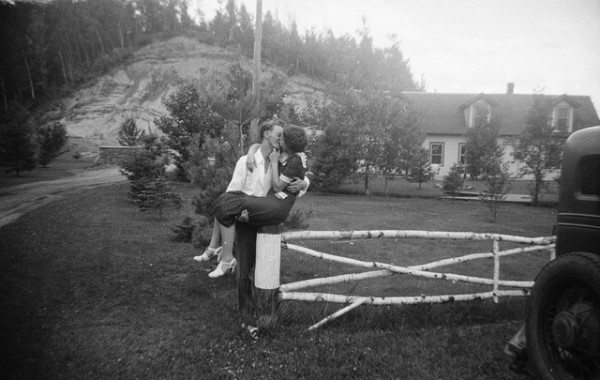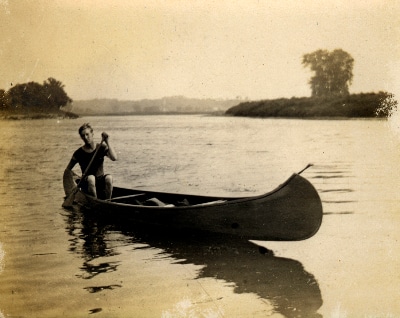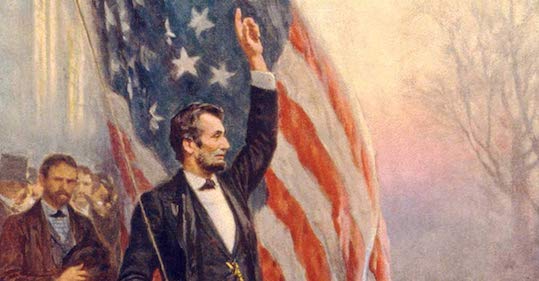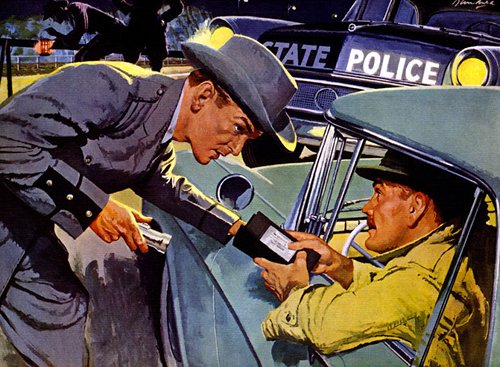
You’re driving home from work and your mind drifts from the events of the day to who would win some hypothetical historical matchups. Like, if say Teddy Roosevelt and Sasquatch stepped into the ring, who would come out the victor? Would TR’s boxing and wrestling prowess win the day, or would Sasquatch’s brute strength be too much for the prez to overcome?
Little do you realize, your foot is getting heavier and heavier on the gas as you imagine this battle for the ages. Pretty soon, you’re going 58 MPH in a 45 MPH zone and you don’t even know it. Just as you imagine Teddy perform a Sasquatch Suplex, the flash of red and blue lights in your rearview mirror brings you back to reality.
Crap. You’re getting pulled over. Stupid Sasquatch Suplex.
I can still remember the first time I got stopped by the police. My heart sank in my chest, my palms started sweating, and I was nervous as all get out. I had no clue what I was supposed to do. Where should I pull over? Do I turn my car off? Should I have my license and insurance ready before the officer arrives at my window?
While getting pulled over by the police is never a pleasant experience (unless you enjoy paying traffic fines), there are a few things you can do to make it less stressful for both you and the officer. To find out what you should do if you’re ever pulled over in a traffic stop, I talked to AoM readers Phil Hull, a police officer from Georgia, and Andy, an attorney also from Georgia. (Georgia AoM readers were really responsive to my tweets asking for help. Southern hospitality for the win!)
Note: This article focuses on traffic stops for minor traffic violations like speeding, rolling through a stop sign, or having a broken taillight. It also assumes that you’re not doing anything criminal like driving while intoxicated or possessing illegal drugs. That’s a whole other ball game. Also, this article is for informational purposes only and not for the purpose of providing legal advice. You should contact an attorney to obtain advice with respect to any particular issue or problem.
Put Yourself in the Officer’s Shoes
According to Phil, the first thing that citizens need to know about traffic stops is how extremely dangerous they are for officers. “Traffic stops are one of the most dangerous and unpredictable aspects of law enforcement — second only to domestic disputes,” he says. Statistics back up Phil’s claim. According to the National Law Enforcement Officers Memorial Fund, traffic stops are one of the leading causes of police deaths. What makes traffic stops so hazardous?
First, there’s the danger that the pulled-over motorist poses to the officer. Sudden and violent attacks are common. Dozens of officers are killed each year by gun fire during traffic stops. The second threat officers face while making stops is traffic. Officers getting hit by passing vehicles is, sadly, too common.
Knowing the dangers that traffic stops pose to officers should guide your actions whenever you see those flashing lights behind you. The advice that follows boils down to two key points: 1) pull over to a safe area and 2) don’t do or say anything that will make the officer think you’re a threat. Below we flesh out this bit of general advice.
What to Do When You Get Pulled Over by the Police
Acknowledge the officer by turning on flashers. To let the officer know that you’ve seen his lights and that you plan on pulling over, turn on your emergency flashers. Phil recommends you do this if you think you’ll need to drive a distance before you can find a safe place to pull over.
Pull over to a safe area. Typically, you want to pull over to the right side of the road. When looking for a spot to pull over to, think “safety first” for both you and the officer. Phil recommends looking for an area with a wide shoulder so passing traffic isn’t a hazard. If it’s nighttime, look for place that’s well lit if possible. That will help put the officer at ease. Parking lots and well-lit side streets are other safe places to pull over to.
“If you need to travel a short distance to pull over, do so at a slower pace than you normally drive,” Phil recommends. You don’t want the officer to think you’re trying to make a getaway. Also, if you need to cross multiple lanes to pull over to the right-hand side of the road, do so safely.
Stay in the car. If you get out of the car as soon as you stop, it may give the impression to the officer that you’re going to be aggressive or you have something to hide in the car. Just keep your bum in your seat.
Turn off engine, roll down window, and turn on your dome lights. As soon as you come to a stop, turn off your engine and roll down your window. If it’s dark out, turn on your dome light so the officer can see what’s going on inside the vehicle as he approaches.
Stay calm. It’s common to get amped up whenever you get pulled over. Take some deep breaths and relax. Unless you’ve done something outright criminal (i.e. driving intoxicated, possessing illegal drugs, etc.) there’s nothing to be nervous about. The worst that can happen during a routine traffic stop is that you’ll have to pay a fine. Oh, and your insurance will probably go up. Pretty sucky, but not the end of the world. If it helps, it’s good to remind yourself that the officer is probably nervous too.
Stay still and keep your hands on the steering wheel. Keep your hands resting on the wheel and remain still as the officer approaches your vehicle. You don’t want to give him or her any reason to believe you’re a threat.
If you plan on fighting your ticket, keep answers short and don’t directly admit wrongdoing. Everything you say to an officer is admissible in court, so if you plan on fighting your ticket, Andy suggests not saying anything that indicates you are guilty. Officers will typically ask questions to get some sort of admission out of you when they first walk up to your window. For example, “Do you know why I pulled you over?” Don’t say, “I was speeding, sir.” Simply say, “No” or, “I don’t know.”
But sometimes, saying “I’m sorry” works. However, Andy states that sometimes it doesn’t pay to be coy like this with the officer, and that it’s better to just fess up and apologize. “If you accidentally roll through a stop sign and immediately apologize, they may let you off with a warning.” If you don’t plan on fighting your ticket, just say, “I’m sorry, officer. I was imagining Teddy Roosevelt with Sasquatch in a headlock. I’ll pay more attention next time.” I’ve gotten off with just a warning a few times by saying those words, showing the officer some courtesies, and being polite
Wait for the officer to ask for your documents. Don’t try to expedite the process by getting your license and registration ready while the officer approaches your car. For all he knows you could be reaching for a gun or trying to hide some sort of incriminating evidence. Wait until he or she gets to the window and asks for your documents.
Move deliberately. When you do reach to get your license and registration, do so deliberately. “A quick reach into the glove compartment for your insurance paperwork looks the same as a quick reach into your glove compartment for a weapon,” says Phil. If your wallet is in a gym bag in your backseat, let the officer know before you turn around and rummage for it. Quick Tip: Try to keep your glove compartment relatively organized, and your documents together, so that when you pull the box open, you don’t have to frantically sort through 20-year-old maps and wads of receipts to find your registration.
If you’re carrying a gun, let the officer know. Some states have laws that require concealed carry owners to inform officers that they’re carrying a gun anytime they get pulled over. These are called “must inform” states. Officers are allowed to ask for and hold the weapon for the duration of the stop.
Even if you don’t live in a “must inform” state, as a courtesy to the officer, you might want to disclose the fact that you’re carrying. Nothing puts an officer on red alert like seeing a “print” of a gun through a motorist’s clothes.
Return hands to the steering wheel. After you’ve handed the officer your paperwork, return your hands to the steering wheel. “It keeps them visible to the officer,” says Phil.
Be civil. Be polite and respectful in your communications with the officer. Yes, it sucks to get a ticket, but calling the officer names, threatening him, and being rude won’t get you anywhere. In fact, it could make things worse. If the officer happens to be a woman, refer to her as “officer” or “ma’am,” not “sweetheart” or “honey.” She’s an officer of the law, show some respect.
You don’t have to consent to a search. In order to search your vehicle without your consent, an officer needs probable cause – maybe he smells something in the car or sees a bottle on your seat. If he doesn’t have probable cause but wants to search your car anyway, he’ll need your consent and may ask you something like, “You don’t mind me taking a look in your car, do you?” Even if you haven’t done anything illegal, it’s usually a good idea to exercise your Fourth Amendment right in this situation and decline the search. “While you may believe you have nothing to hide, you never know what could come up. Maybe a friend left an empty beer can in your back seat during a tailgate party, and the officer will charge you with an open container violation,” Andy explains. Politely decline the search by saying, “I don’t consent to a search, officer,” loud enough so it gets on the police recorder. That’s it.
Don’t argue. “The side of the road is not the place to argue a charge,” says Phil. If you want to contest the ticket, you can do so in court and in front of a judge.
Sign the citation. If the officer decides to issue a citation, he’ll ask you to sign it. Sign it. It’s not an admission of guilt, it’s just recognition that you’ve received the citation and that you promise to either 1) pay the fine or 2) show up to court on the designated date. “A signature on a citation in most jurisdictions is in lieu of you posting a cash bond. Posting a cash bond generally consists of a trip to the nearest jail or judge and may include a booking process and fingerprinting. It is always easier to sign the ticket,” says Phil.
Be safe when merging back into traffic. Phil recommends taking your time to store your belongings before you re-enter traffic. “If you’re upset, collect yourself before driving away.” When you’re ready, turn on your signal and merge back into traffic. This time, avoid any mental fight simulations involving Teddy Roosevelt and Sasquatch until you get home and are safely ensconced in your man chair. Stay safe out there.
Got any traffic stop stories? Any other tips you should follow when getting pulled over by the police? Share them with us in the comments!
Thank you to Phil and Andy for offering their advice for this article.


